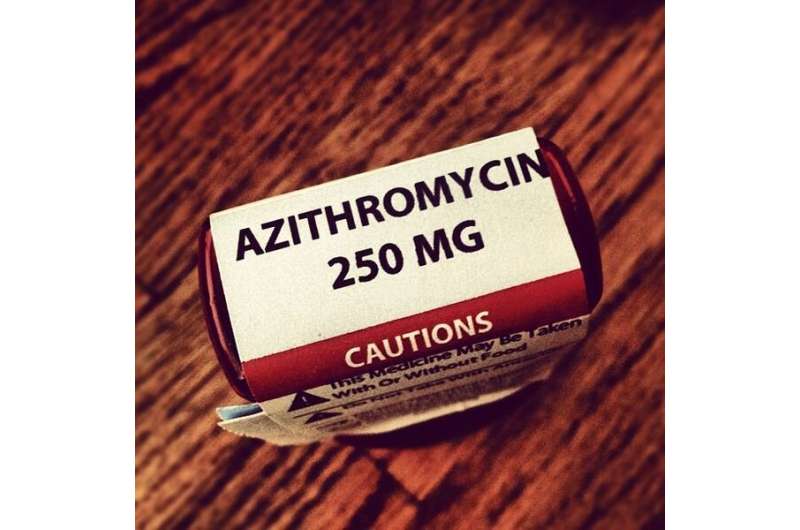Study evaluates biomarker to help curb unnecessary antibiotic use

Testing for procalcitonin, a blood biomarker that is increased in people with a bacterial infection, could help physicians more quickly and effectively determine whether patients need antibiotics. Knowing that would ultimately reduce the rate of unnecessary antibiotic use, according to a new study from Duke Health and four other U.S. sites.
"Lower respiratory infections are one of the most common reasons for patient care and unnecessary antibiotic use," said Ephraim Tsalik, M.D., Ph.D., adjunct associate professor in the Department of Medicine at the Duke University School of Medicine, and vice president and chief scientific officer of infectious disease at Danaher Diagnostics.
"These infections can be viral or bacterial," Tsalik said. "While antibiotics help treat bacterial infections, they don't work on viruses. Both types of infections lead to similar symptoms, and because it's hard to distinguish between the two, antibiotics are often prescribed unnecessarily."
This study, published December 13 in The Lancet Infectious Diseases, looked at patients with low likelihood of bacterial lower respiratory tract infections and a low concentration of procalcitonin (which tends to be low in patients without a bacterial infection). The authors hypothesized that patients with low procalcitonin levels are unlikely to benefit from antibiotics—specifically, azithromycin.
While placebo was inferior to azithromycin at day 5 of the study, there were no differences in clinical improvement rates between the two groups at days 11 and 28 of the study. The antibiotic-treated group also experienced higher rates of side effects such as abdominal pain.
The study also sought to determine why azithromycin was better than placebo at day 5. Their findings suggested it was the anti-inflammatory (rather than the antibiotic) properties of azithromycin that made the difference. However, distinguishing between these two possibilities can be challenging.
"The findings give physicians and patients an opportunity to better weigh the risks and benefits of an antibiotic on a case-by-case basis," Tsalik said.
"If a clinician is treating a patient with chronic underlying health problems, they might not be willing to withhold antibiotics, even if the procalcitonin level is low, but if the patient is otherwise healthy, or if the decision to treat with antibiotics is not an obvious one, the test may be helpful in making that determination," Tsalik said.
Decreasing unnecessary antibiotic use is beneficial to the patient and would help curb antibiotic resistance, which happens when bacteria evolve mechanisms to evade the effects of antibiotics.
"If a young, relatively healthy patient is willing to forgo a possible benefit at day 5 by avoiding antibiotic use, they also avert any antibiotic-related side effects, avert disruptions to their microbiome, and help lower the chances of developing antibiotic resistant infections," Tsalik said.
More information: Ephraim L Tsalik et al, Efficacy and safety of azithromycin versus placebo to treat lower respiratory tract infections associated with low procalcitonin: a randomised, placebo-controlled, double-blind, non-inferiority trial, The Lancet Infectious Diseases (2022). DOI: 10.1016/S1473-3099(22)00735-6

















